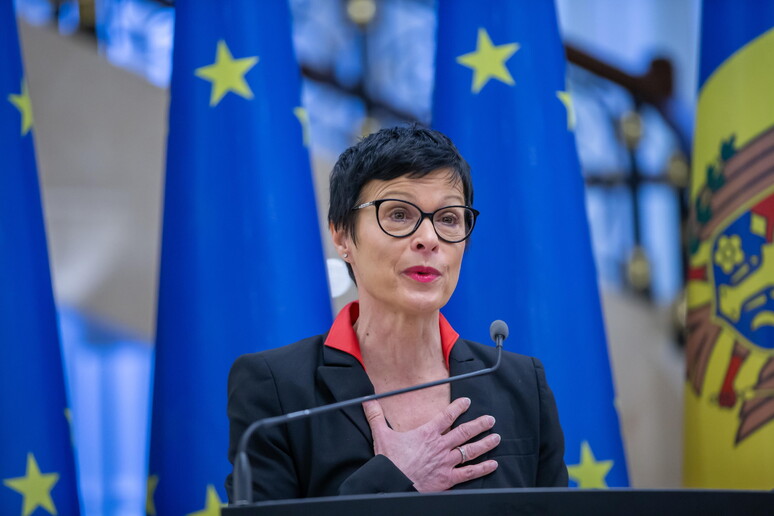The EU's enlargement chief has issued
a stark warning that the bloc's credibility and security are at
stake as foreign powers seek to disrupt the process of new
members joining.
The European Commissioner for Enlargement, Marta Kos, is
expecting great progress in the European Union's enlargement
during the next years, but warned of external forces seeking to
disrupt the process.
"For the first time in the history, we are somehow confronted
with the external disruptive forces who would like to see the
enlargement process failing," she told the European Newsroom
(enr) in an interview published on Wednesday. Without further
specifying which external forces she was referring to, Kos added
"they are not coming just from the East".
When asked directly about the influence of third countries and
the role of Moscow or Washington, Kos pointed out that the
European Commission is monitoring agreements such as the one on
minerals and rare earths being negotiated by the United States
and Ukraine, which, she warned, could have implications for the
accession process.
When asked if she was aware of the alleged offer by the new US
administration to Albania to abandon EU negotiations in exchange
for investment, Kos said she had no knowledge of it.
The Slovenian Commissioner emphasised that only the EU has the
capacity to incorporate more countries, so the bloc has a "huge
responsibility" in a process that also puts its "credibility" at
stake. "That's why really we have to deliver. And that's why we
cannot lose any of the candidate countries," she emphasised.
Focus on security
Kos pointed out that geopolitical changes have led to new
dynamics in the enlargement process. In contrast to previous
waves of countries joining the bloc, it now also has a security
dimension, she said.
"The whole world is in motion, the whole Europe is in motion,
the whole neighbourhood is moving. And the aspect of security is
getting more and more important," she said.
"We understand enlargement as the political arm of security
guarantees," Kos said. "European Union membership could really
be a very, very strong political arm of these security
guarantees."
Russia's full-scale invasion of Ukraine in February 2022 has put
security and defence back at the forefront with EU member states
ramping up their defence capabilities.
Additionally, US President Donald Trump has repeatedly cast
doubt on security guarantees for Europe through the North
Atlantic Treaty Organization (NATO) military alliance, prompting
European members to start taking matters into their own hands
more than before.
Kos said that for the time being it is not possible for Ukraine
and Moldova to join NATO but that EU membership would send a
strong message.
She called it "interesting" to see that Balkan countries such as
Montenegro, Albania, and North Macedonia have found it "easier"
to become members of NATO than of the EU - a situation that,
according to her, could be the opposite for Moldova and Ukraine.
(by enr with AFP, ANSA, APA, ATA, EFE, Europa Press, FENA, HINA,
Lusa, MIA, Ritzau, STA, TASR, Tanjug, UKRINFORM).
ALL RIGHTS RESERVED © Copyright ANSA











